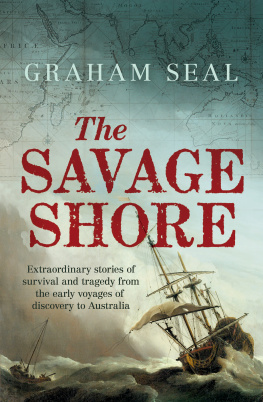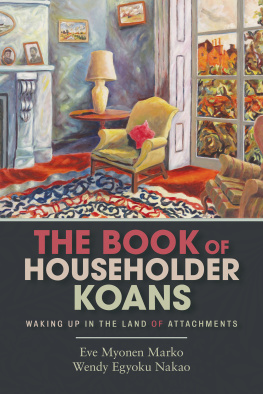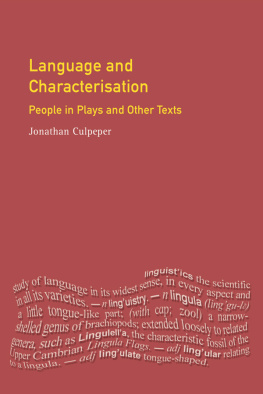INVENTING AMERICANS IN THE AGE OF DISCOVERY
For Sue
Inventing Americans in the Age of Discovery
Narratives of Encounter
MICHAEL HOUSEHOLDER
Marshall University, USA
First published 2011 by Ashgate Publishing
Published 2016 by Routledge
2 Park Square, Milton Park, Abingdon, Oxon OX14 4RN
711 Third Avenue, New York, NY 10017, USA
Routledge is an imprint of the Taylor & Francis Group, an informa business
Copyright Michael Householder 2011
Michael Householder has asserted his right under the Copyright, Designs and Patents Act, 1988, to be identified as the author of this work.
All rights reserved. No part of this book may be reprinted or reproduced or utilised in any form or by any electronic, mechanical, or other means, now known or hereafter invented, including photocopying and recording, or in any information storage or retrieval system, without permission in writing from the publishers.
Notice:
Product or corporate names may be trademarks or registered trademarks, and are used only for identification and explanation without intent to infringe.
British Library Cataloguing in Publication Data
Householder, Michael.
Inventing Americans in the age of discovery: narratives of encounter.
1. Indians First contact with Europeans Early works to 1800. 2. Travelers writings, English America History and criticism. 3. America Discovery and exploration European Early works to 1800. 4. National characteristics, American, in literature. 5. English prose literature Early modern, 15001700 History and criticism.
I. Title
970.0170922dc22
Library of Congress Cataloging-in-Publication Data
Householder, Michael.
Inventing Americans in the age of discovery: narratives of encounter / by Michael Householder.
p. cm.
Includes bibliographical references and index.
1. AmericaEarly accounts to 1600History and criticism. 2. IndiansFirst contact with EuropeansHistoriography. 3. AmericaDiscovery and explorationHistoriography. 4. English languageRhetoric. I. Title.
E141.H76 2011
970.01072dc22
2010053823
ISBN 9780754667605 (hbk)
ISBN 9781315589701 (ebk-PDF)
ISBN 9781317113225 (ebk-ePUB)
Contents
List of Figures
Preface
This book examines the accounts of the earliest contacts between Europeans and the indigenous peoples of North America. It has two aims. The first is to show the ways in which English encounters with the New World were in fact mediated by rhetorical constructs borrowed from classical travelogues, medieval pilgrimage guides, and accounts of Spanish conquistadors. The second is to demonstrate how these re-invented tropes and narrative structures became part of an American colonial discourse. In particular, the book analyzes the capacity of narrative writing to both record the scene of encounter and re-create for the reader an unfolding experience of epistemic shock and recovery.
In making this argument, I depart from some of the assumptions that have dominated the fields of both early modern English and colonial American literary studies. I argue against the view that English writing about the Americas functioned as an instrument of empirean ideological tool that reinforced domination through a rhetoric of cultural superiority. I demonstrate that, in addition to promoting an ideal of European mastery and confidence, English narratives of encounter dwell on colonizers impotence and confusion in ways that cannot be contained by the ideology of imperialism. Furthermore, I propose a more nuanced understanding of the origins or risetwo terms often used to occlude the complex interactions of cultural exchange and developmentof Euro-American culture, one that considers precisely how written accounts of the various early contacts between Europeans and Native Americans were transmitted and adapted by later writers. At a time when cultural observers are wondering how globalization and immigration will change American culture, this book reminds readers of this continents long history of transculturation and the central role that writingand especially narrativeplayed in making it happen.
Although this book seeks to understand the particular circumstances of the English colonization of North America, its scope reaches back to the fourteenth and fifteenth centuries to understand the discursive background of those encounters. Beginning first with the Book of Sir John Mandeville and then moving to Richard Edens translations and compilations of Spanish travel writing, it establishes how some of the root structures of encounter narrative were established and subsequently modified, a recursive process of rhetorical invention. The book then explores examples of the inventive repurposing of older materials by demonstrating how written descriptions of voyages to Africa and Russia shaped the first sustained narrative descriptions of the English encounter with America: George Bests accounts of Martin Frobishers voyages to the icy coasts of Canada in search of a Northwest Passage. The final three chapters of the book examine more closely a recurring theme in these texts: the use of narrative as a defense against, as well as a redemption of, the limited profitability (and outright failures) of the earliest English colonial enterprises. expands on this notion of the English colonists dependence on indigenous knowledge by analyzing John Smiths narrative accounts of the Virginia colony, and especially the recurrence of textual silences that both mark and elide Smiths liminal subjectivity. The sixth chapter, together with the conclusion, use John Underhills account of the Pequot War of 1637in particular, his account of the captivity and redemption of two English girlsto demonstrate how the erratic, splintered, recursive, and frequently aporetic quality of encounter narratives evolved (through the popularity of the Indian captivity narrative) into a recognizably distinct American discourse.
Acknowledgments
In writing this book I have been fortunate to have many marvelous encounters of my own. Conferences sponsored by the Society of Early Americanists provided an ideal venue for me to share and improve my arguments. In addition, I would like to thank Peter Mancall and the USC-Huntington/Early Modern Studies Institute for inviting me to present some of my work on Richard Eden. Similarly, I wish to thank Frederic Regard for including me as part of the Unstable Zones conference at the Ecole Normale Suprieure Lettres et Sciences Humaines in Lyon, France. Finally, this project benefited from a crucial injection of support and encouragement as a result of my participation in an NEH Summer Institute on British-Indigenous Cultural Encounters organized by Scott Manning Stevens and held at the John Carter Brown Library at Brown University.
I am grateful to the librarians and staff at the John Carter Brown Library at Brown University and the DeGolyer Library at Southern Methodist University for their unfailing professionalism and kindness.
In ways both great and small the following people have assisted me as mentors, coaches, interlocutors, co-conspirators, and friends: David Puente, Jim Zeigler, Paul Lin, Helen Oesterheld, Drew Newman, Michael Clark, Brook Thomas, Louis Montrose, Mary Fuller, Ralph Bauer, Ivy Schweitzer, Susan Castillo, Karen Ordahl Kupperman, Roland Greene, Rey Chow, Janet Gabler-Hover, Mary McAleer Balkun, Dara Salem, Rebekah Hurt, Ezra Greenspan, Rajani Sudan, Richard Bozorth, Suzanne Bost, and Lisa Siraganian. I could not have finished this book without the encouragement and support of Dennis Foster and Nina Schwartz.







